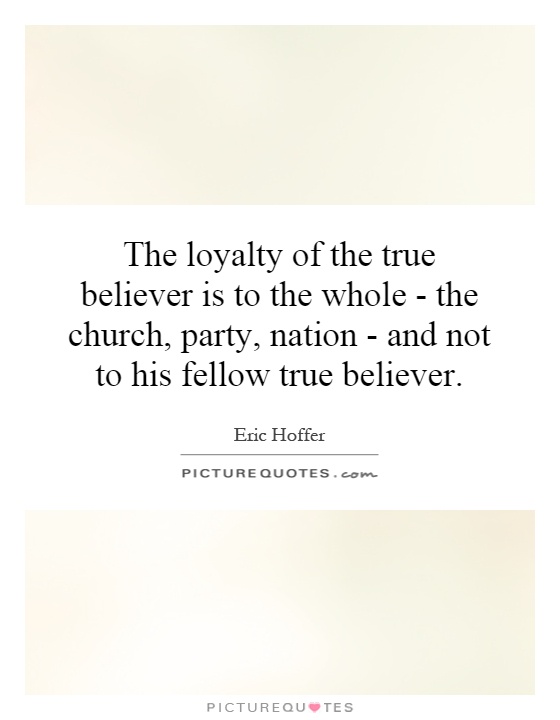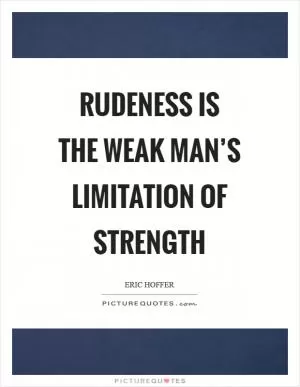The loyalty of the true believer is to the whole - the church, party, nation - and not to his fellow true believer

The loyalty of the true believer is to the whole - the church, party, nation - and not to his fellow true believer
Eric Hoffer, a renowned American philosopher and author, delved deep into the psychology of mass movements and the behavior of true believers. One of his most famous quotes is, "The loyalty of the true believer is to the whole - the church, party, nation - and not to his fellow true believer." This statement encapsulates the essence of Hoffer's observations on the nature of loyalty and devotion within mass movements.Hoffer believed that true believers are individuals who are deeply committed to a cause or ideology, often to the point of fanaticism. These individuals derive their sense of identity and purpose from their affiliation with a larger group, such as a church, political party, or nation. In their eyes, the collective entity they belong to is more important than any individual member, including themselves.
This concept of loyalty to the whole rather than to fellow believers is a key aspect of Hoffer's analysis of mass movements. He argued that true believers are willing to sacrifice their own interests, values, and even lives for the sake of the greater cause they believe in. This selflessness and devotion to the collective entity is what drives the fervor and intensity of mass movements, whether they be religious, political, or social in nature.
Hoffer also noted that true believers often exhibit a sense of superiority and disdain towards those who do not share their beliefs. This can lead to intolerance, prejudice, and even violence towards dissenting voices or opposing groups. In the eyes of the true believer, anyone who does not align with their ideology is seen as a threat to the unity and purity of the collective entity they are loyal to.
Overall, Hoffer's insight into the loyalty of the true believer sheds light on the complex dynamics of mass movements and the power of ideology to shape individual behavior. By understanding the psychology of true believers, we can gain a deeper understanding of the forces that drive social and political movements, as well as the potential dangers of blind devotion to a cause.












 Friendship Quotes
Friendship Quotes Love Quotes
Love Quotes Life Quotes
Life Quotes Funny Quotes
Funny Quotes Motivational Quotes
Motivational Quotes Inspirational Quotes
Inspirational Quotes